PRAFUL PATEL, who has died in Mumbai, aged 84, made a startling claim about the Ugandan Asian crisis in his last interview with Eastern Eye.
He revealed that the British government was aware that Idi Amin was planning to expel Uganda’s entire Asian population before the African dictator made his now notorious speech on August 4, 1972, setting a 90-day deadline for those affected to leave the country.
Praful said that in June 1972, he tipped off Edward Heath’s Tory government that Amin was planning such an expulsion.
Given Praful was a lifelong member of the Labour party – he even stood as a parliamentary candidate in Brent North in 1987 (the seat is now represented by Labour’s Barry Gardiner) – it is ironic that his decision to work closely with Heath’s ministers led to grateful Ugandan Asians voting Conservative. And this laid the groundwork for today’s close relationship between Indian voters and the Conservative party.
Praful also told Eastern Eye of an unusual encounter with Enoch Powell, who had made life difficult for non-white immigrants in Britain with his racist “rivers of blood” speech in 1968.
As the only Asian member of the Uganda Resettlement Board, Praful played a key role in easing the path of some 30,000 Asian refugees who arrived in the UK with barely a suitcase each and little or no money.
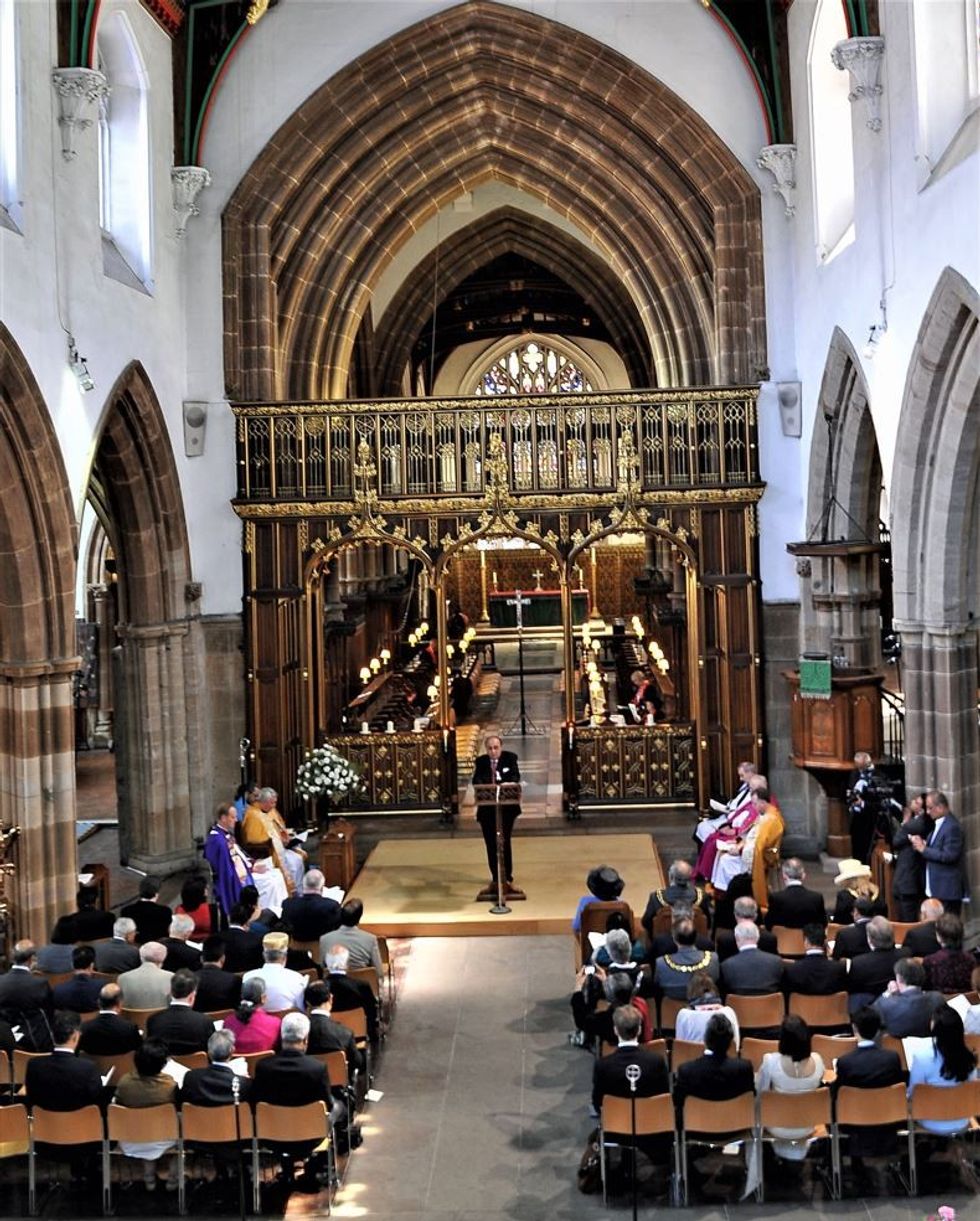
He was at Stansted airport when the first charter flight bringing the refugees landed on September 18, 1972. He marked the 40th anniversary of the event on November 8, 2013, when he returned to Stansted to witness a plaque being put up to remember those who had come on the first flight. In June that year, Praful also attended a service of thanksgiving at Leicester Cathedral.
He said some people had urged him to postpone the ceremonies until the 50th anniversary. But Praful didn’t agree.
“Some of those who left Uganda 40 years ago have passed away – and in another 10 years, many more will pass away,” he pointed out. “I am 73 now. Maybe I won’t be here.”
He did live to see the 50th anniversary, but only just. He managed to come to London last year though now confined to a wheelchair. Praful was presented to King Charles at a reception at Buckingham Palace to mark the 50th anniversary of the Uganda crisis. In 1982, then Prince Charles had attended a performance of the Ramayana that Praful had helped produce in London.
Praful died in Mumbai last Wednesday (16) and was cremated the following day. A prayer meeting was held for him in Mumbai last Sunday (20), when he was described as a “dynamic, caring and passionate person”.
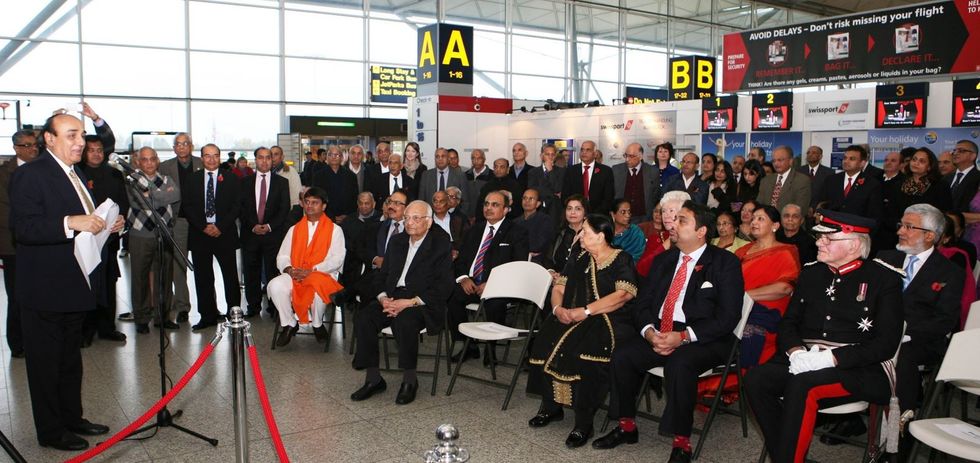
He was all those things, but he could also be mischievous. “Maza ho jayega (it’ll be fun),” he would explode with laughter after engaging in a bit of naughty politics.
He was an affable, larger-thanlife character who joined umpteen committees and organisations, usually putting himself at the centre of events.
“Do you think the Solankis will put me on the front page?” he wondered, only half-jokingly, when I spoke to him on the line to Mumbai from London on July 10 last year.
Perhaps he realised his time was coming to an end. “I have been hospitalised three times, I’ve had a second seizure attack, and I speak slowly, but my memory is good,” he assured me.
Home for him for the last 30 years since he relocated from London had been Room 1009 in the new wing of the Taj Mahal Hotel in Mumbai. He had been confined to the hotel for two-anda-half years with long Covid. He told me he relied on a daily session with his physiotherapist. He was being supplied with special vegetarian food by Kokilaben Ambani – mother of Mukesh and Anil Ambani and widow of the great industrialist Dhirubhai Ambani – from her domestic kitchen.
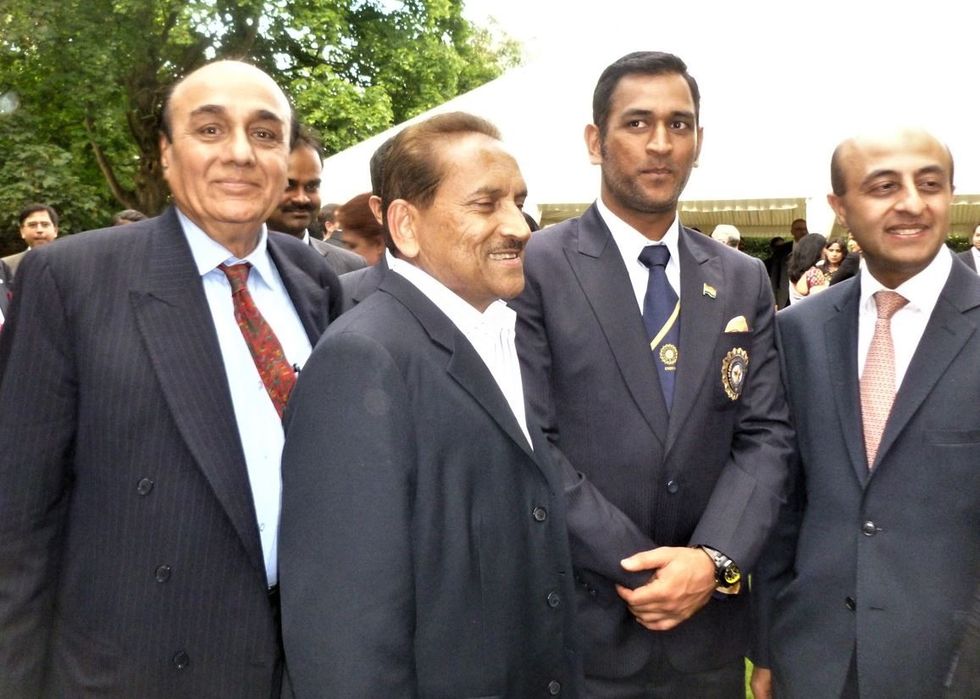
Praful, a British national, said his visa had expired and he was struggling to get an OCI card (“so many forms to fill”).
We arranged a second call on July 15, 2022, when we went over the events of 1972 – and how they had shaped modern Britain – in fine detail. I doublechecked the names of politicians and senior officials he gave and the positions they had held as well as various dates and found his memory was indeed perfect.
Praful said: “In June 1972, a dear friend of mine, who was in college with me and was working in president Idi Amin’s office, secretly disclosed to me that Idi Amin had plans to throw out all the Indians.”
Amin had asked an Englishman from the old colonial service who had stayed on after Uganda gained independence from Britain in 1962 to draw up “a policy paper on expelling all the Indians because ‘they controlled all the trade and the economy’. And I took it quite seriously.”
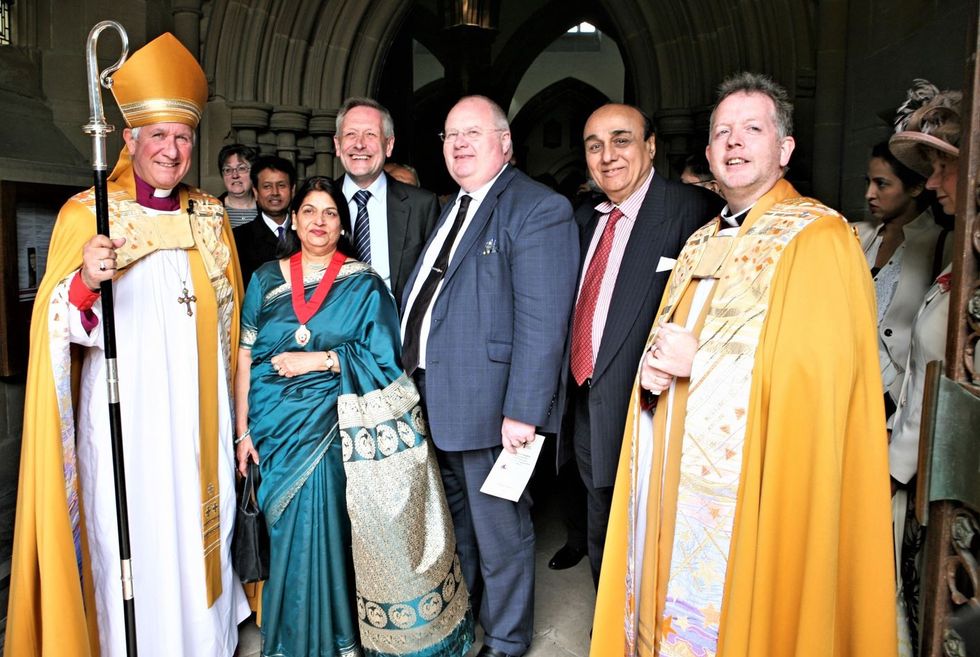
Praful contacted the Tory MP for Ashford (and Daily Telegraph journalist), Bill (later Lord) Deedes, then chairman of the home affairs select committee. Deedes was “flabbergasted”.
“We had lunch together in the Commons and as we walked to St Stephen’s Gate, he said, ‘I’ve got to go back now and meet (the foreign secretary) Alec DouglasHome to warn him about this. He asked, ‘How reliable is your friend, because – if this were to happen - we’ll have a huge crisis in the wake of Enoch Powell and the Kenyan crisis? There is enough fear as it is (about immigration) among British people.’” Deedes was referring to Asians being pushed out of Kenya in 1968 as the country undertook a policy of Africanisation.
Praful said: “Bill rang me and said he had spoken to the prime minister Edward Heath who had been made aware of this possibility (of expulsions). And they would start to work diplomatically through the old colonial and now Commonwealth office to see this didn’t happen.
“Bill met me again. He said, ‘Don’t worry. We’ve taken care of everything. Heath was laying down a strategy to work on Amin, calm him down. He was sending the chairman of the Monday Club on a mission to Uganda.”
The Monday Club would today be considered the fascist wing of the Conservative party. Its members believed in repatriating nonwhite immigrants and repealing race equality laws.
In the end, Geoffrey Rippon, who had been active in the Monday Club, was sent – but after August 4. He failed to persuade Amin to change his mind. In fact, Amin made him “kneel” before entering a small tent as a way of humiliating his English visitor.
Later, Ugandan Asian refugees gained more sympathy among the divided British public after Amin said he would also make the Queen kneel before him.
“One thing you don’t do is abuse the royal family,” commented Praful.
Praful admits he was “militant” when following Amin’s announcement he went on Radio 4 at 6 am and said that if “Britain stops Asians coming to the UK, we will bring them by ship to Portsmouth and then land them by boat from there. Bill rang me at 7.30am and said, ‘Praful, don’t sound so militant. Be calm. Appeal to the Commonwealth, appeal to the United Nations.’ He had quite an influence on me. That’s how I got closer to Whitehall.”
He next received an invitation to lunch from David Lane, the liberal Tory MP for Cambridge who had been appointed a junior Home Office minister under Robert Carr. Lane later became the first director of the Commission for Racial Equality (1977–1982).
Praful was given a key role when he was appointed the sole Asian member of the Uganda Resettlement Board, with Sir Charles Cunningham as chairman.
He realised he made a mistake in opposing the induction of excolonial civil servants who were brought out of retirement to assist the board. He was impressed with the speed with which the crisis was handled.
Praful made a number of practical suggestions. One was to set up kitchens in the camps so that traditional English “meat & two veg” was not foisted on vegetarian refugees (Praful himself remained a vegetarian throughout his life). Another crucial recommendation was that the refugees, who were “hardworking”, should be allowed to leave the camps as soon as possible and find employment. Many pooled family resources and managed to buy a shop or a home, however modest, within a year.
Cunningham “taught me about Whitehall and the corridors of power,” said Praful. “This is a man who knew how to twist the mandarins and get money out of them.”
Praful’s political contacts widened to include Tories, Labour and Liberal politicians – Peter Bottomley and his wife, Virginia; Joan Lester; Greville Janner; Peter Soulsby; Shirley Williams; Lord Sorensen; Lord Aldington, among many others. He made friends with a number of journalists, among them Peter Evans from the Times, and John Kemp from the Daily Telegraph.
Praful remembered: “I must pay tribute to Ramniklal Solanki. He came to the camps for his writing. He was very helpful and his was the only Gujarati paper. He was very active.”
Garavi Gujarat, set up by Ramniklal and Parvatiben Solanki in 1968, was only four years old when the Uganda crisis happened.
Praful also recalled his most unexpected encounter of all. “I was at the Tory party conference in 1972. Sir Charles Cunningham and I decided we should watch the debate from the gallery and one of the BBC fellows called and said, ‘We want to interview you with Enoch Powell.’ I said I didn’t mind. But if he becomes abusive or racial, I will not leave him alone, but go to town on him.”
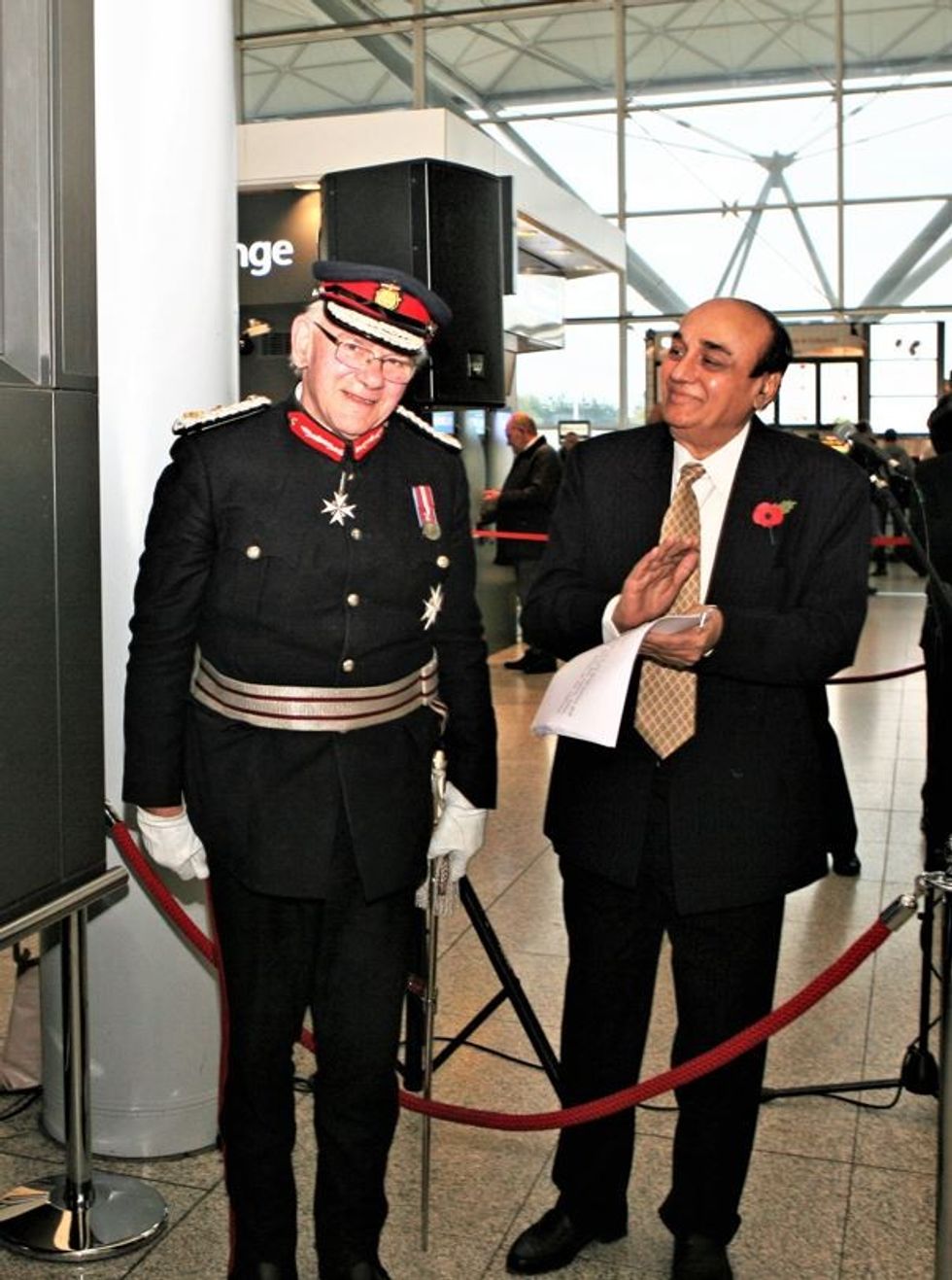
They were interviewed separately, but went into the lounge during the coffee break: “I met Enoch Powell and I’ve never known someone who was so pro-India. He knew more about India, Indian culture, Indian tradition than I did. I found him very friendly, a very kind and courteous man. He knew several Indian languages, by the way. I was quite surprised.”
As for his anti-immigrant views, “he was quite open about it. ‘This is a small island. We cannot have so many people, especially from east and central Africa.’ I argued about economic growth in Britain. He said, ‘You are right, but we don’t need people from different races to come and create more tensions.’ Looking back, I think that the British people generally are very sympathetic to refugees.
“The biggest economic growth that has taken place in Britain is fully due to Uganda Asians – Kenyan Asians also because Gujaratis have an ability to make money and be successful.
“The biggest tribute I can pay is to the tolerance of the British people. The signal comes from the top and Ted Heath was very positive. Ted Heath was really popular with the Asian community.”
Heath, who was prime minister from 1970-1974, went against a big part of the Conservative party, to recognise the UK’s moral and legal obligation to British passport holders of Asian origin in Uganda. He died, aged 89, in 2005.
In 2015 when Heath could not answer allegations that he had been a homosexual who had sexually abused small boys, Praful angrily weighed in on behalf of the former Tory prime minister.
He declared: “I recall my interactions with Heath when he came across as a deeply compassionate person with integrity and conviction. His decision to admit Ugandan Asians was one of the most courageous acts by a British politician, who had the toughest possible battle at the Tory party conference in 1972 to win a resolution to admit British Asian Ugandans.
“Ugandans owe him a debt of gratitude. I could unequivocally say I would never believe such scurrilous allegations about him. It was Ted Heath, who led the prayers in 1997 when we celebrated the 25th silver jubilee celebration of the arrival of Ugandan Asians.”
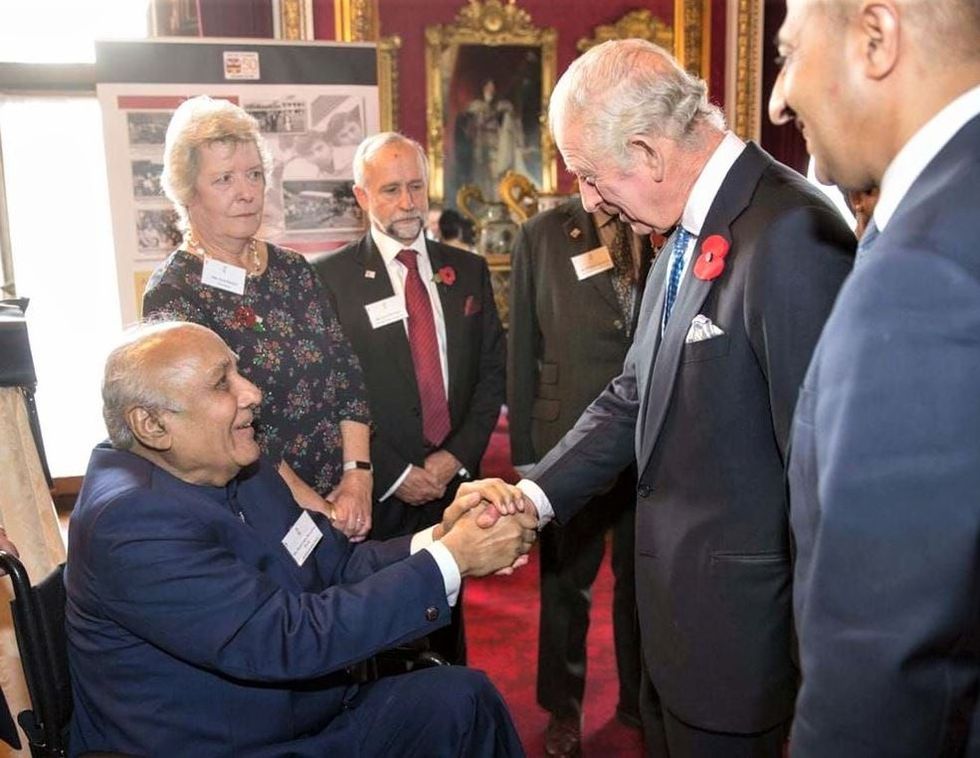
Prafulbhai Raojibhai Chaturbhai Patel – he styled himself Praful RC Patel – was born in Jinja, a small town in Uganda, on March 7, 1939. Playing on the word “gingered”, meaning “to make something more lively or exciting”, he was pleased that he had “Jinja-d” up many things in life, especially in politics.
His father, Raojibhai Patel, came to Uganda from Gujarat just before the Second World War and established a wholesale business.
“We were two brothers and eight sisters,” said Praful.
“My father was very strict. He made us listen to All India Radio. I had African friends and used to bring them home which my father did not like.”
He attended the Government Primary School, Jinja, and then MM High School in Sojitra in Gujarat, before returning to Uganda to study at the Government Secondary School in Jinja. He helped set up the Uganda Students Union and pressed for holidays for Hindu religious festivals.
In 1958, his father sent him to London, but reluctantly, because he feared his son would become Anglicised. Praful took a correspondence course in economics and the British constitution at the Oxford Tutorial College, while attending lectures at the London Institute of World Affairs.
He returned to Uganda, but came back to London in 1960, this time to settle. He bought a flat for £5,000 near the British Museum in 1965, an adjoining one in 1982, and knocked them together to create a more spacious apartment. This became the headquarters for his many political activities – and frequent dinner parties. Pandit Ravi Shankar once came home for dinner – and played the sitar for charity.
Praful’s family say he was “instrumental in the arrangements for His Holiness Param Pujya Pramukh Swami Maharaj’s first visit to the UK in 1974. During the early 1970s, Praful served as chairman of the Board of Trustees for BAPS Swaminarayan Sanstha, UK.”
In Mumbai he worked as an investment adviser and business consultant. He remained active in Ugandan Asian affairs as chair of the India Overseas Trust.
After the industrialist Manubhai Madhvani passed away, aged 81, in 2011, Praful visited Uganda for his ashes ceremony.
He also went to his own home town of Jinja and saw the school he had attended. Seeing the dilapidated state of his birth place, “I was in tears,” he confessed.
















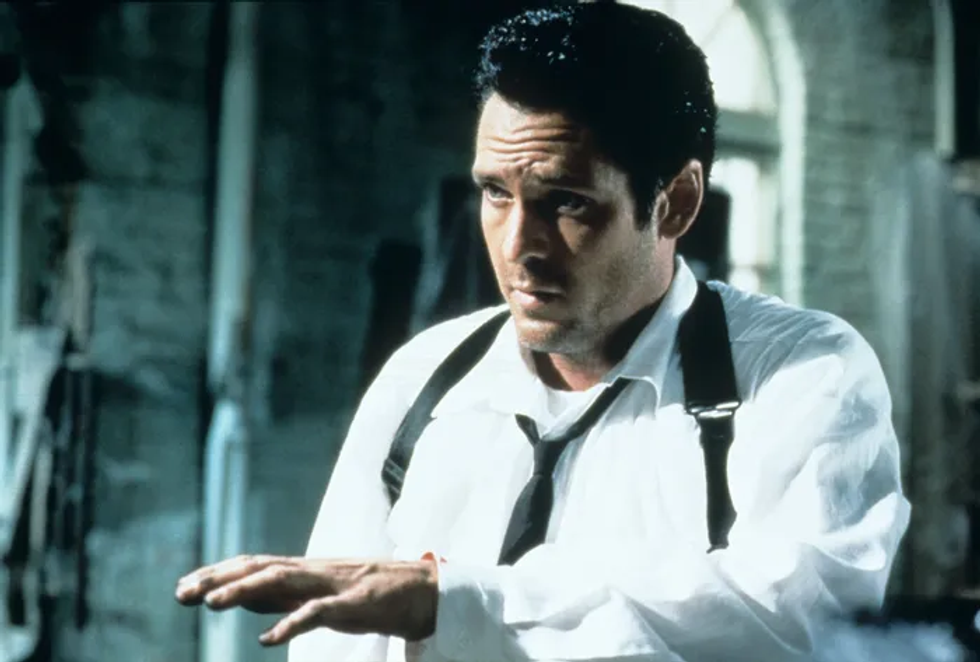 Reservoir Dogs
Reservoir Dogs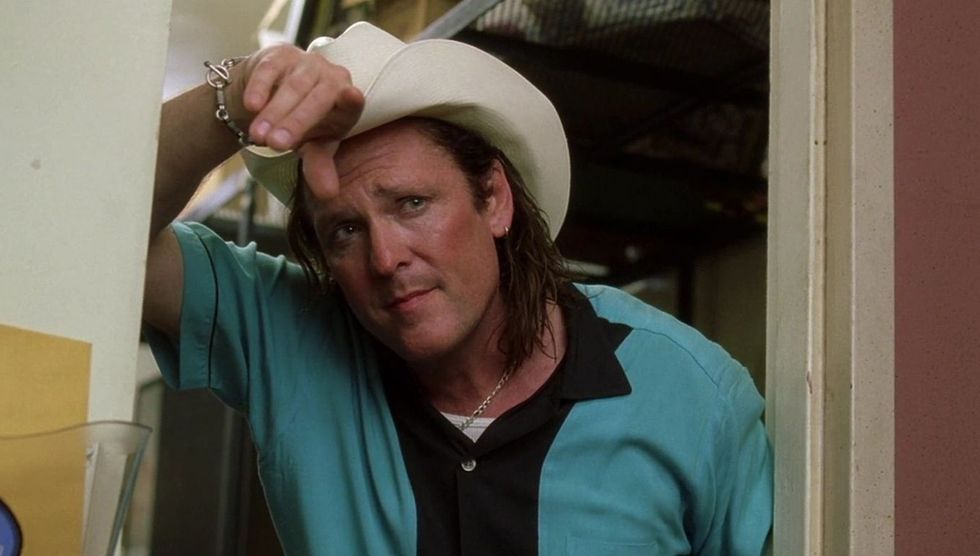 Michael Madsen as Budd aka SidewinderIMDB
Michael Madsen as Budd aka SidewinderIMDB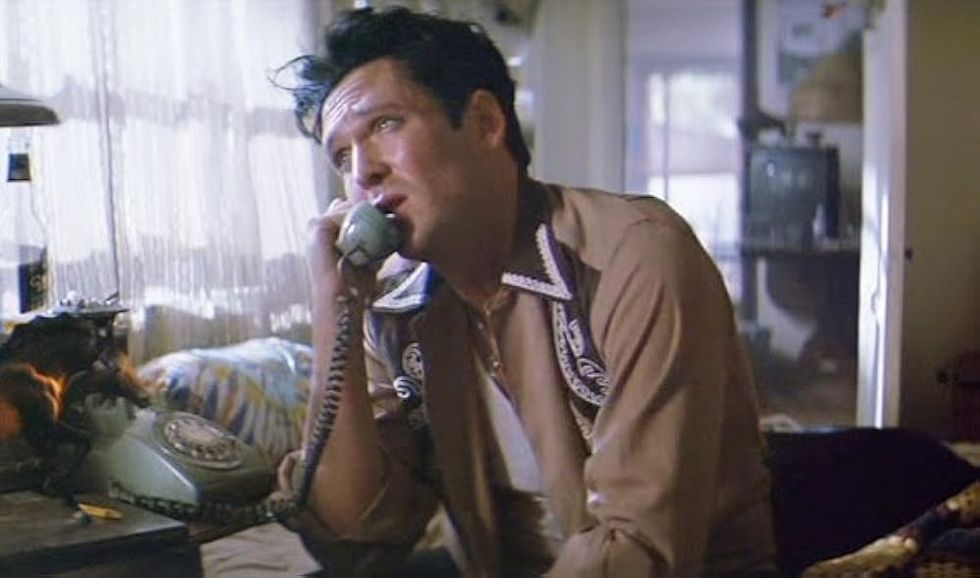 Thelma & LouiseIMDB
Thelma & LouiseIMDB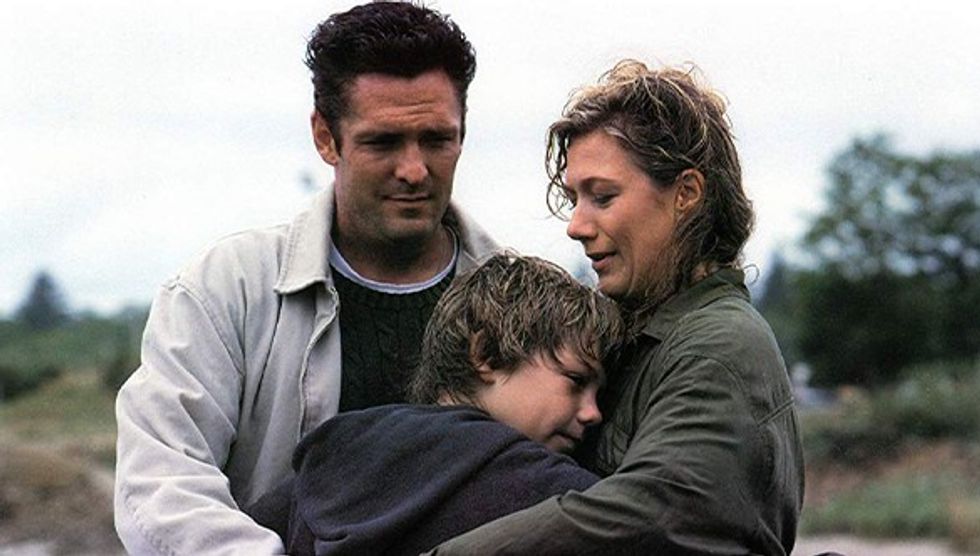 Free WillyIMDB
Free WillyIMDB 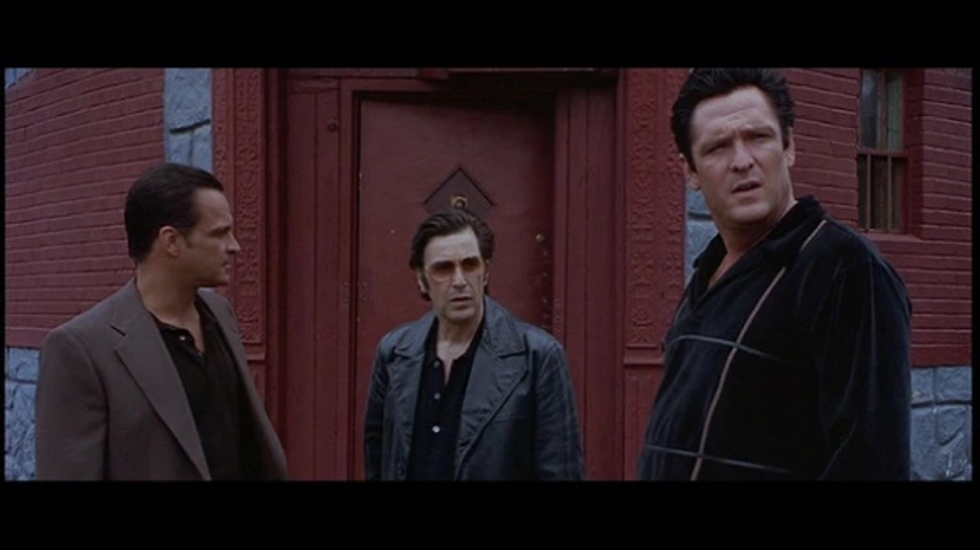 Donnie BrascoAlex on Film
Donnie BrascoAlex on Film  Sin CityIMDB
Sin CityIMDB  The Hateful Eight IMDB
The Hateful Eight IMDB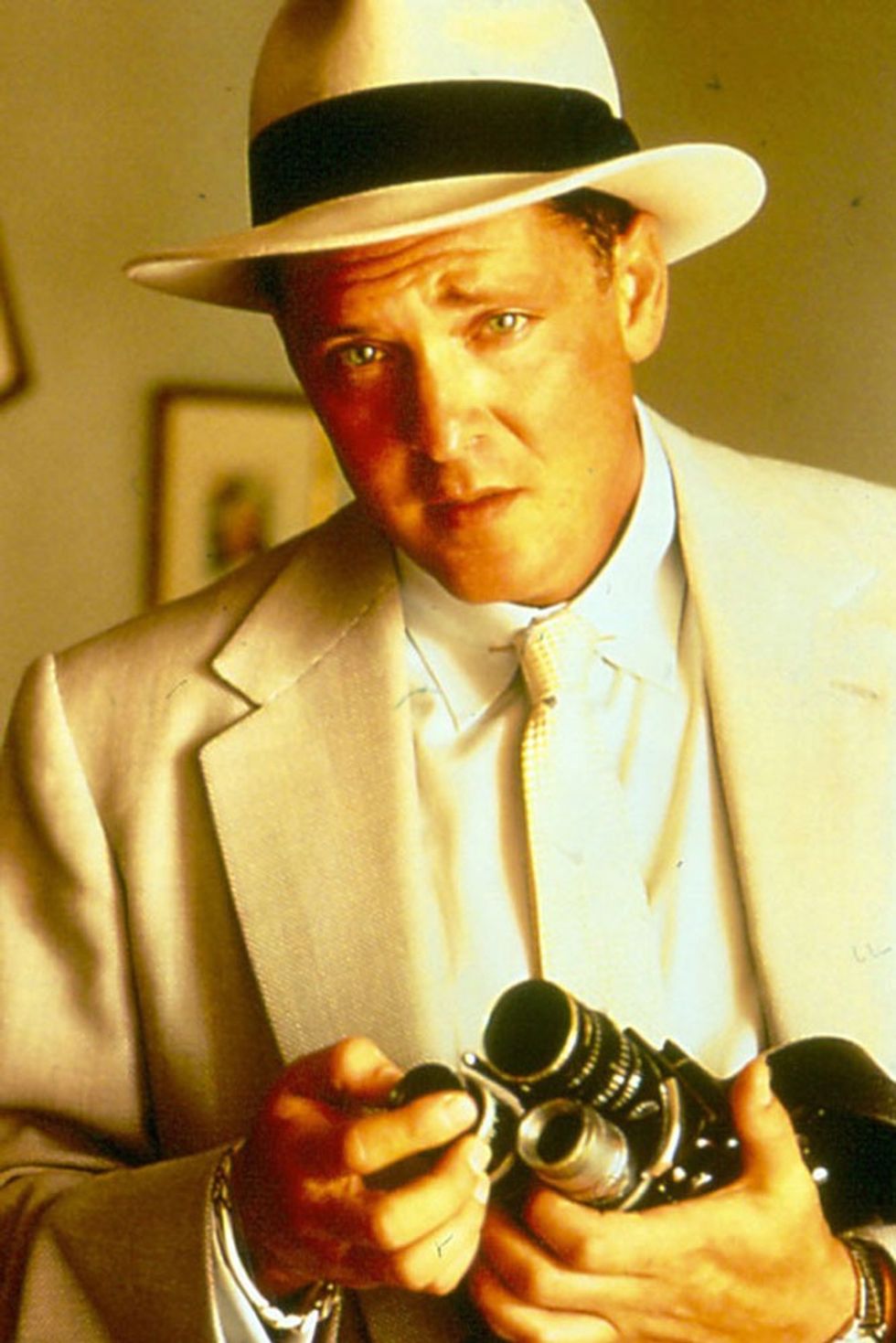 Mulholland FallsVirtual History
Mulholland FallsVirtual History 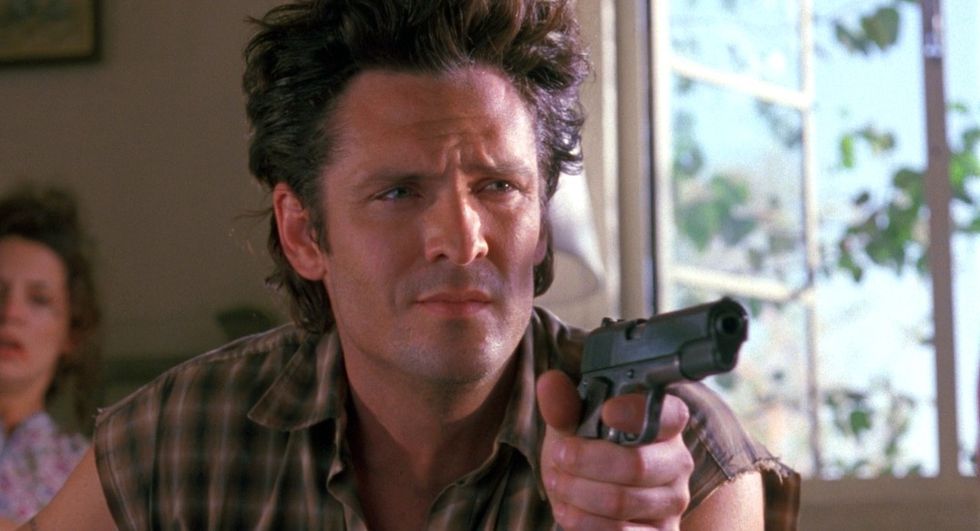 Kill Me Again
Kill Me Again 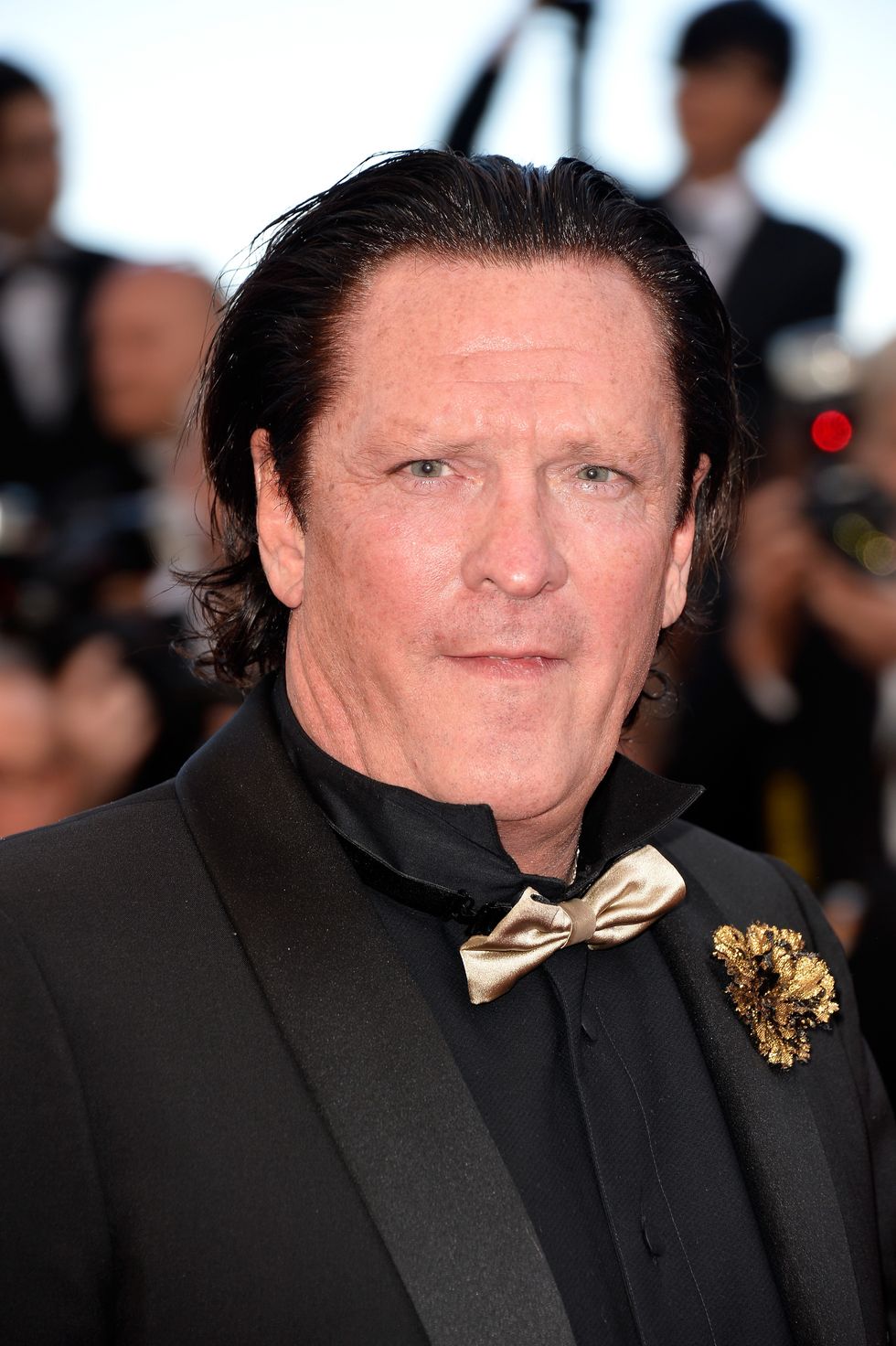 Michael Madsen attends the Closing Ceremony and Fistful of Dollars Screening Getty Images
Michael Madsen attends the Closing Ceremony and Fistful of Dollars Screening Getty Images 
